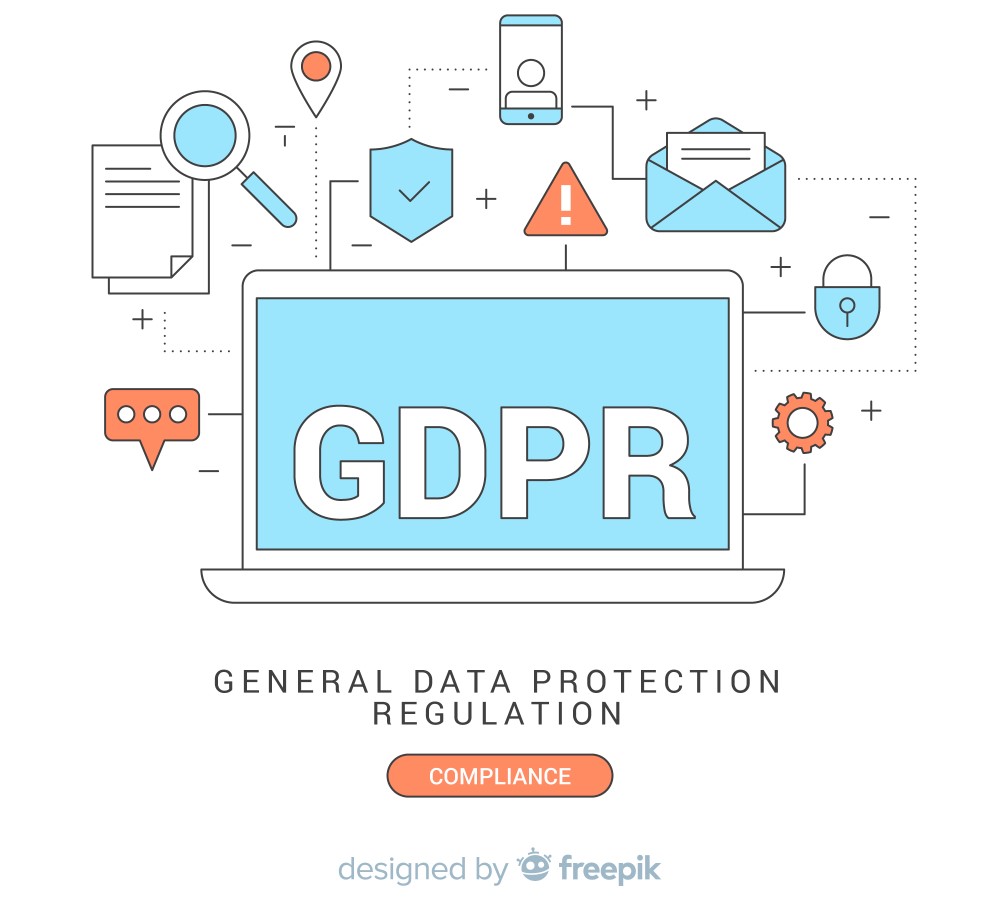
Businesses and companies know that QR codes are one of the many gateways to collecting customer data. However, no entity can just use its customers’ personal data to do whatever they want with. This is because rules and regulations have been put in place to protect consumers’ data from falling into the wrong hands.
It is imperative that you as a business safely handle your customer’s data and comply with GDPR regulations when conducting business with QR codes. So, let’s dive in as we explore GDPR in business and how it affects the use of QR codes in this piece!
What is a QR code?
QR codes are images containing data that can be scanned by specified devices, or more commonly, smart devices like phones and tablets. They work in a similar way to the UPC barcodes you might find on a grocery store product, but are capable of storing much more data.
These codes can be used to view and access things like web addresses, text documents, images, promotional material, social media pages, contact information like email addresses and phone numbers, videos, educational content, payment services, and much more!
What is GDPR Compliance?

Enacted in 2018, GDPR stands for General Data Protection Regulation. The law obligates companies and businesses to process European citizens' data transparently, securely, and with the user’s consent.
In short, GDPR protects the data and privacy of Europeans. It applies not only to businesses operating within the EU, but also to any and all entities that process European data.
GDPR compliance means fully adhering to the law. If a business fails to comply then they will be forced to pay a hefty fine, among other potential punishments.
How do QR Codes relate to GDPR Compliance?
Since QR codes are used in businesses to collect first-party data and generate leads, they become subject to GDPR compliance, though not directly, as QR codes do not collect information themselves.
A scan would not disclose your personal data to the QR code generator except for location, time, and the type of device it was scanned on. Still, depending on how companies use them, QR codes can be used to collect data from users.
Data can be collected in the following ways-
Companies can collect customer information through QR codes by directing the user to a landing page, a signup form, or a business card. When asked, customers can share details like email addresses, phone numbers, etc., thus making businesses using QR codes subject to GDPR compliance.
Another way is through gamification, where QR codes direct users to a particular app or game that requires them to enter their emails and grant permissions like contacts, browsing activity, location, etc., thus subjecting QR code usage to GDPR compliance.
Businesses need to collect data to provide relevant and personalized services to their customers. As long as they comply with privacy protection laws, this practice is legal. While GDPR technically only applies to European citizens, it’s important to consider compliance guidelines even if your business or customers are not located within the EU.
Things a Businesses Should Consider for GDPR Compliance for QR Codes
What principles must businesses adhere to to meet GDPR compliance? Take a look at the below list-
1. Transparency- Notify beforehand
The main principle of GDPR is ensuring transparency. Your customers should know what they are about to give away or disclose. Transparency in this context includes notifying customers beforehand of the following things-
- What information will be collected?
- Where will it be used?
- How will it be used?
- How is processing this data in their best interest?
2. Obtain User’s Clear Consent
Notifying a customer as to how their information will be used is the responsibility of the company or business in charge. Although it is possible to collect explicit data without the customer’s knowledge, it’s morally wrong to do so without their consent.
GDPR strictly requires businesses to obtain user consent beforehand.
3. Freedom to Change Preferences
The freedom to change preferences allows customers to access, modify, or delete their given personal data to a particular company/website anytime without hindrance.
4. Data Minimisation
Data minimization refers to collecting only the data necessary for your business purpose. For example, if your QR code is for event registration purposes, then collecting payment details and home addresses is redundant. For GDPR compliance, consider collecting minimal data–which is relevant.
5. Delete When You no Longer Need it
As soon as you achieve your goal, delete the user data. Keeping it afterward or using it for any personal purpose is against data protection laws.
Storing information that is no longer needed on the server only welcomes cyber attackers. Timely clearing is better than nurturing a potential data breach.
Creating QR Codes while Maintaining GDPR Compliance
After knowing what to follow in GDPR compliance, the next step is to create a QR code safely. If a QR code is not created and executed with the right measures, it may compromise your customer’s data and your reputation.
Step 1: Choose a Reputed QR code Generator
Always choose a reputed and reliable QR code generator like QR Codeveloper. You can ensure this by checking the QR software's ratings/reviews. A bad QR software might pose security risks to user data.
Step 2: Check your Content Before Encoding
Double-check the content you want to embed in the QR code. Wrong information can misdirect users, posing data privacy threats and, thus, non-compliance with protection laws.
Step 3: Use Encryption and Password
When a business collects personal customer information, it is important to keep the data safe. Thus, To prevent unauthorized views and access, encryption of sensitive information is necessary.
Encryption ensures that breachers do not get unauthorized access to that data. Add passwords as well. Encryptions and passwords make even more sense in the case of financial and medical records.
Step 4: Test the QR Code Before Final Use
Test the QR code a few times before displaying it for customer use. This will ensure the barcode is quickly scannable and directs the user to the correct address.
Step 5: Monitor Performance
Your job is far from done creating and displaying the QR code. After putting out the barcode, keep a keen eye on its performance. Monitor the number of scans, data collected, and any cyber attack vulnerability.
